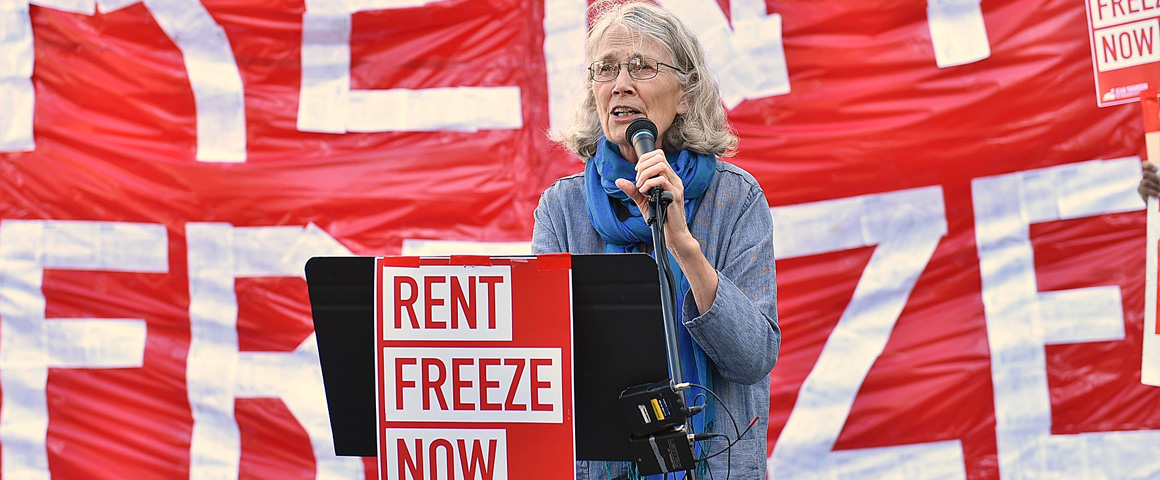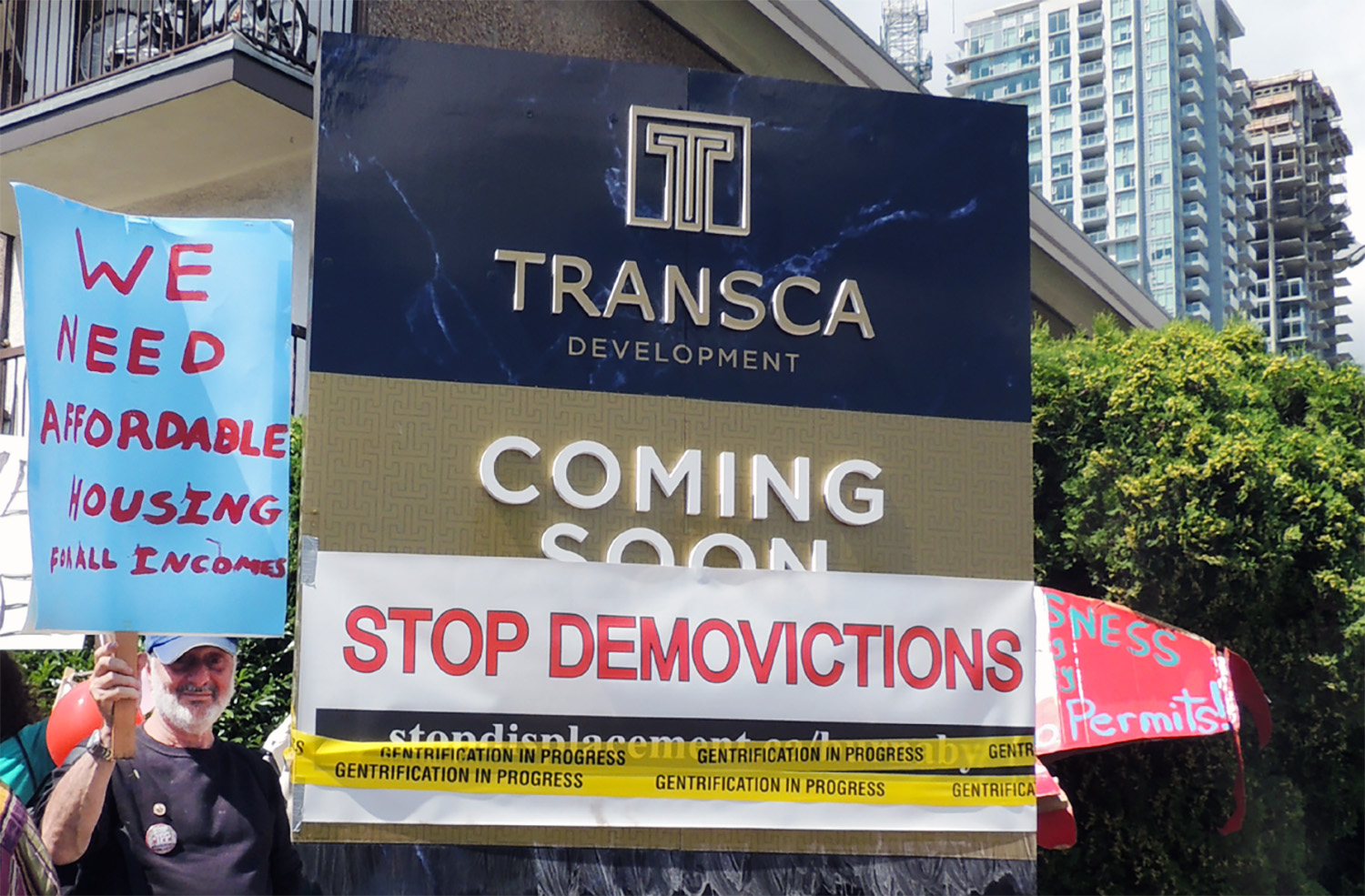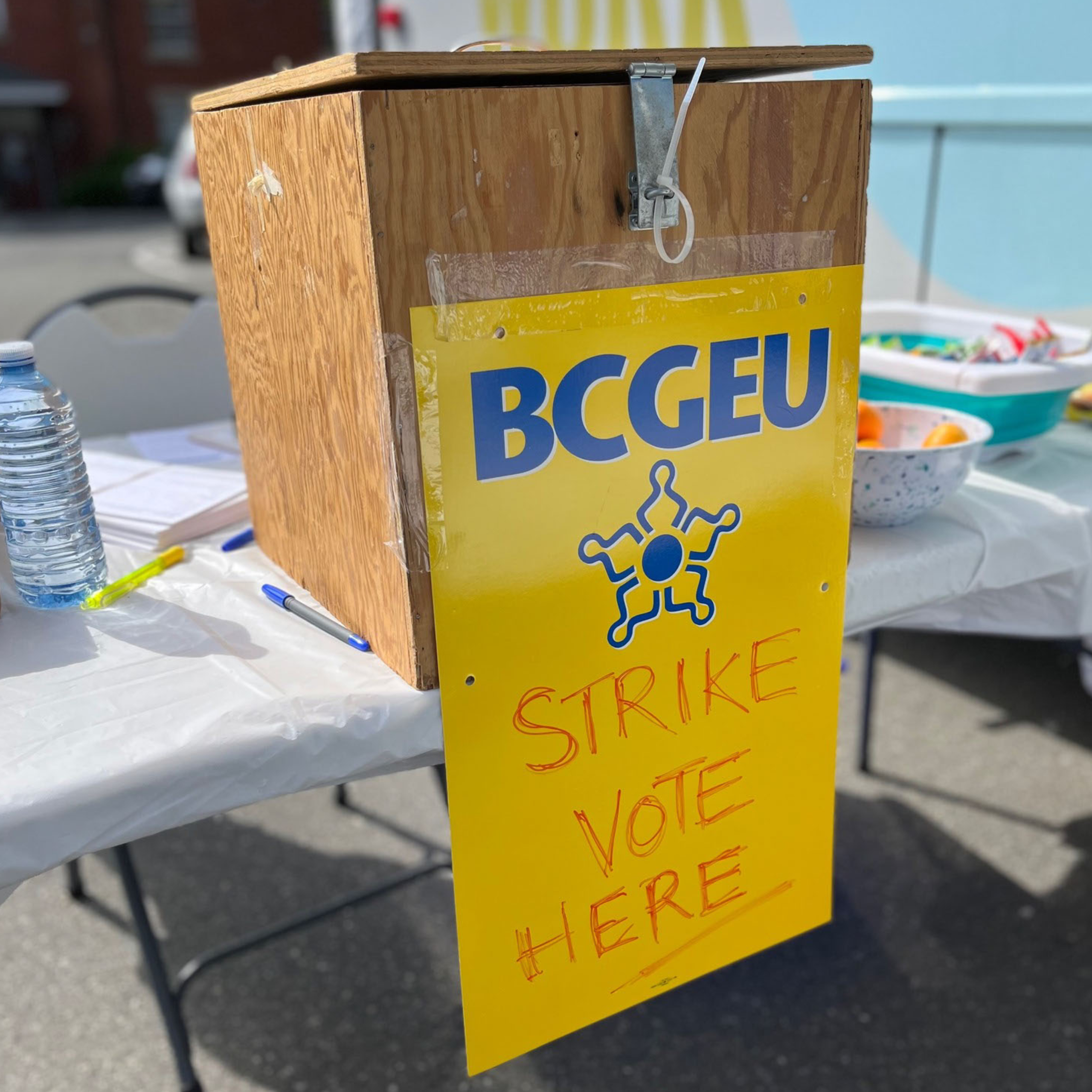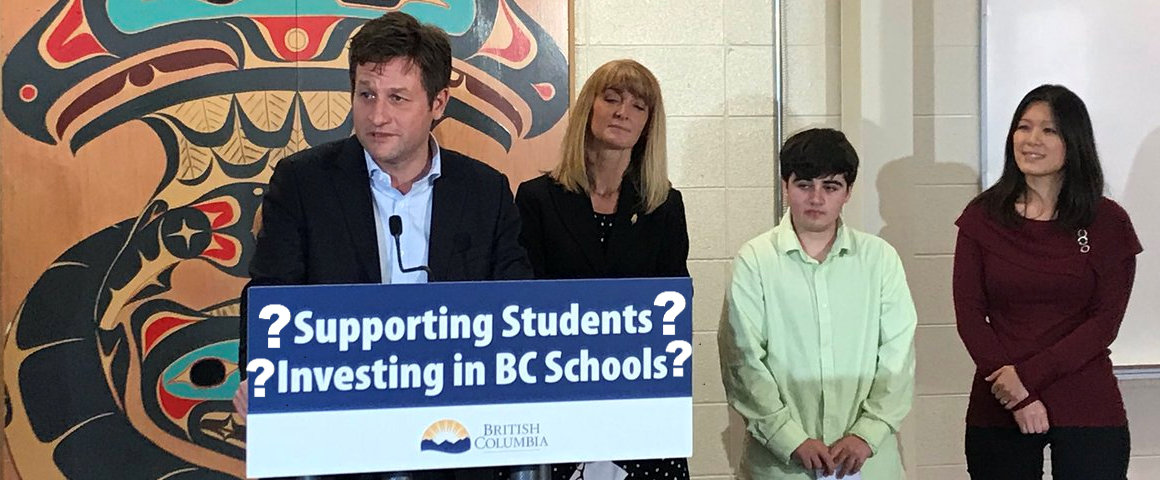PV Vancouver Bureau
The October 14 Vancouver civic byelection for one city council seat and nine school trustees was an interesting test of political winds heading towards the regular municipal elections next year. The results were mixed, with strong votes for progressive candidates, but the Communist Party renews our warning that right-wing and pro-developer forces could easily take advantage of divisions among progressive groups to win majorities at both levels in 2018.
The council campaign focused almost entirely on the housing crisis in Vancouver. The two parties which have dominated City Council since 2005, Vision and the Non-Partisan Association, have consistently advocated market-driven policies to encourage developers to build condo units. But while increased supply was supposed to reduce prices, rents and housing prices have instead skyrocketed. Combined with stagnant incomes, working people and even professionals find it increasingly difficult to find affordable housing.
Vision won a majority in 2008 with the support of the organized labour movement, after the NPA provoked a bitter strike by outside civic workers. But in this fall’s byelection, for the first time Vision failed to win the backing of the Vancouver & District Labour Council, in part due to its policy of taking jobs out of the scope of collective agreements with CUPE and other civic unions. The loss of labour backing, and wide public anger over the housing crisis, left Vision’s Diego Cardona fifth among nine council candidates, taking just 11.3%.
Not surprisingly, the right-wing NPA’s Hector Bremner won the seat, but with just 27.8% of the total, hardly an overwhelming victory. Jean Swanson, on the ballot as an independent candidate for council, took 21.4% and second place, after mobilizing hundreds of volunteers and mounting a strong campaign around demands for a rent freeze and a “mansion tax.” Pete Fry of the Greens started the campaign strongly, but faltered to finish third at 20.3%. In fourth place was the city’s former housing advocate, Judy Graves, who took 13.2% as the candidate for the left-oriented One City party.
At the Vancouver School Board level, incumbent Janet Fraser and two other Green candidates topped the polls. Vision elected three, including two of its incumbents plus former trustee Ken Clement. The NPA elected two trustees, and One City made its first electoral breakthrough, electing Carrie Bercic.
This creates a new political terrain for the VSB. The new NDP government has partially addressed the education under-funding crisis created by the former Liberals in Victoria, and it remains to be seen which direction this new group of trustees will take. Some will want to act as strong political advocates to defend public education, while others are tied to private school interests and may defer to board management on key issues. Even the election of a new VSB chair is hard to predict, given these very different outlooks. One possibility is that the two NPA trustees may back Janet Fraser for chair, but some have suggested that Bercic could be acceptable to the other parties, especially since she has a strong understanding of VSB operations.
Responding to the outcome of the byelection, the BC Provincial Executive of the Communist Party of Canada issued the following statement:
“Our Party stated at the outset of the campaign that divisions among progressive forces gave the advantage to the two big pro-developer parties, which we said could allow the NPA to win the council seat with as little as thirty percent of the vote. This projection was remarkably close to the final result. There is no guarantee that if One City had dropped its nomination of Graves, all of her votes would have gone to Swanson. Some would have gone to the Greens, for example. But the final outcome would have been closer, and it seems possible that Swanson could have won. On the other hand, considering that the voter turnout was just 11 percent, we caution against reading too much into the byelection figures.
“We also note that byelections are not always an indication of future results. In 1985, for example, COPE won all nine positions in a special VSB byelection, after the trustees elected the previous year were undemocratically removed by the Social Credit provincial government. At the same time, Bruce Yorke, a well-known Communist Party member, won a runoff byelection as a COPE candidate against the NPA’s Phillip Owen. These results led COPE to believe it could win majorities at all levels in the 1986 campaign, and its highest profile City Council member, Harry Rankin, was nominated for mayor. Instead, the NPA’s Gordon Campbell easily defeated Rankin, and the NPA won 7 of 10 council seats plus 8 trustee positions.
“The outcome on October 14 reinforces our view that unity of left and progressive forces must be a high priority heading into the 2018 municipal election. The Communist Party urges an end to sectarian accusations in the wake of this byelection. We support the post-election efforts to bring together all left and progressive civic forces, including the Swanson campaign, One City, and COPE, as well as the VDLC, for urgent discussions around options for cooperation in the next campaign. In our view, the mixed nature of Green policies makes their inclusion in such discussions unhelpful at this time.
“In the past, COPE’s electoral successes were based on building a powerful alliance of the trade union movement, anti-poverty and tenant groups, grassroots community organizations, and NDPers, Communists and other left-wing activists. Such a strategy is needed again today, to reach a minimum agreement to avoid vote-splitting, maximizing the chances to elect city councillors on a platform based on defending the interests of working people and the poor, and school trustees who will fight to defend and improve public education.”




